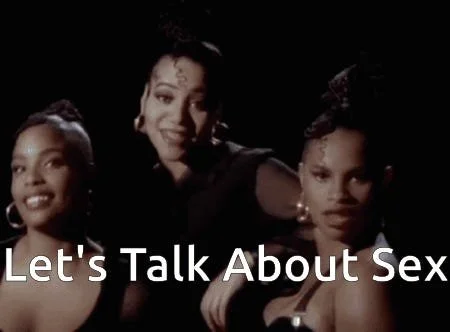Who Wants To See My Bullsh** Button?
Estimated read time: 1 minute
This week’s video drop is around connecting strength training to everyday tasks, like traveling.
Think you can't get your 1st pull-up because you're under the mistaken impression that your best years are behind you? Watch this and I dare you to tell me that's true.
My infamous 'bullshit' button is begging to make an appearance. Please tempt me.
We’re off for the holiday weekend and I just downloaded a book recommended by Emily Morse of Sex with Emily called On Our Best Behavior: The Seven Deadly Sins and The Price Women Pay to Be Good. I’m excited to read it this weekend and will report back.
BTW I’m a huge fan of Emily’s podcast. Yes, duh-uh, it’s about sex and relationships. Let’s talk about sex(ual health) because it’s actually really important!
Thanks to Salt-N-Pepa for making an appearance. Go 1990!
The podcast is not judgy and doesn’t hold back. It’s one of the few that I still try to listen to on a somewhat regular basis.
Life should be fun
Newsflash: I’m not one of those people who is looking to live forever. However, I am looking to have as high of a quality of life as possible, which includes HAVING FUN.
I’m not willing to live a life of abstaining from things I enjoy, but I am willing to make some trade-offs here and there. Data helps with analyzing those trade-offs. The NYTimes (warning: paywall) profiled Peter Attia (thanks, CLW), who authored a new book called Outlive: The Science and Art of Longevity:
In the book, Attia distinguishes between standard medical thinking, what he calls Medicine 2.0, and his approach, Medicine 3.0.
In his telling, Medicine 2.0 is oriented toward addressing the four chronic diseases of aging that will probably be the cause of most of our deaths, but only after they become problems. (Those chronic diseases are heart disease, cancer, Alzheimer’s and related neurodegenerative diseases and Type 2 diabetes and related metabolic dysfunction.)
Medicine 3.0, though, aims to proactively prevent those things for as long as possible and allow us to maintain better health deeper into old age. How exactly? Not through any techno-fantasies of biohacking or wonder-drug supplements (emphasis: JB) but largely with highly rigorous, detailed and personalized monitoring and treatment of our nutrition, sleep, exercise and mental health.
How many of us have smart watches (i.e., Apple Watch or Garmin) helping us track some of these metrics? Is there anything that isn’t tracked that you’d like to see on your watch or phone? Drop ideas in the comments.
Hope you all have a wonderful weekend, wherever your adventures take you!

